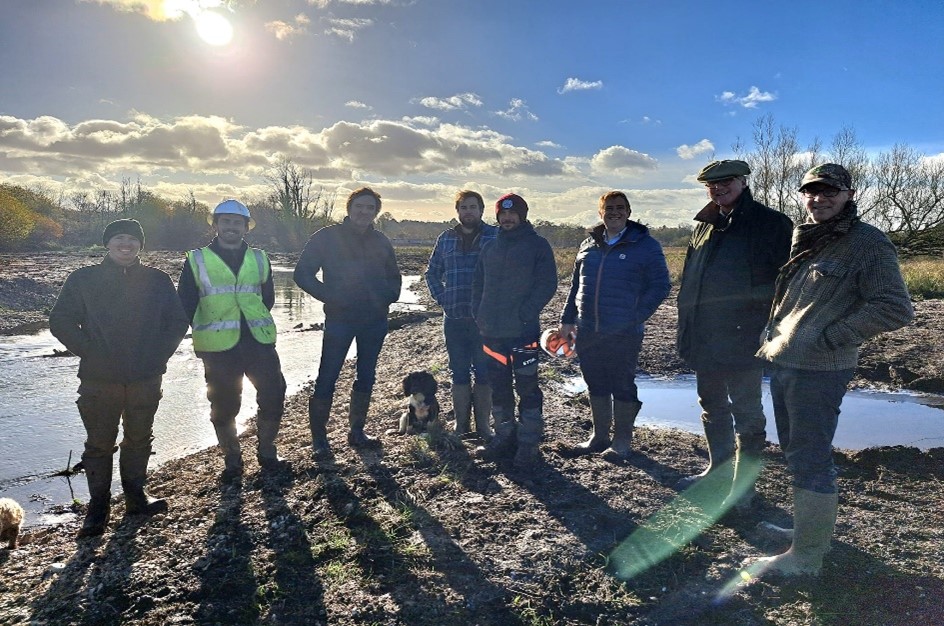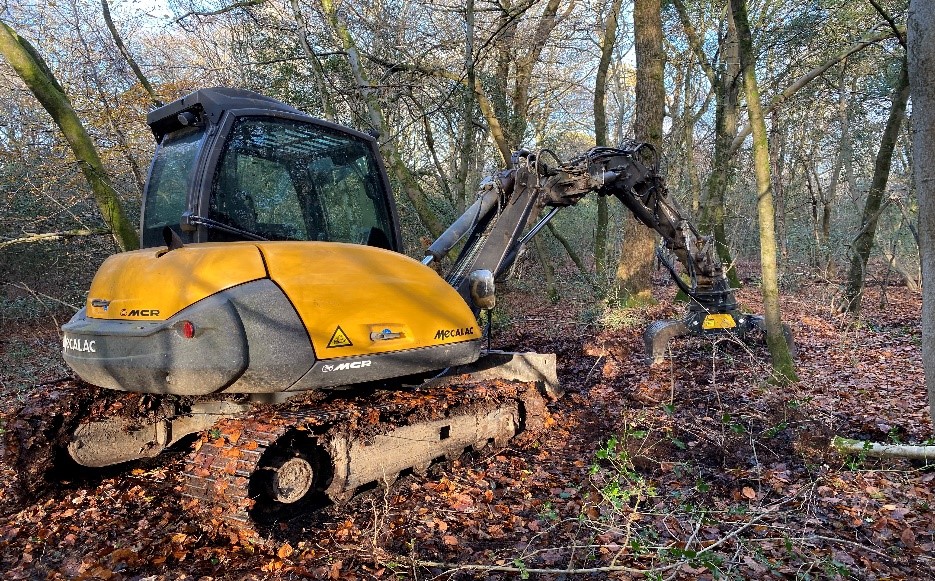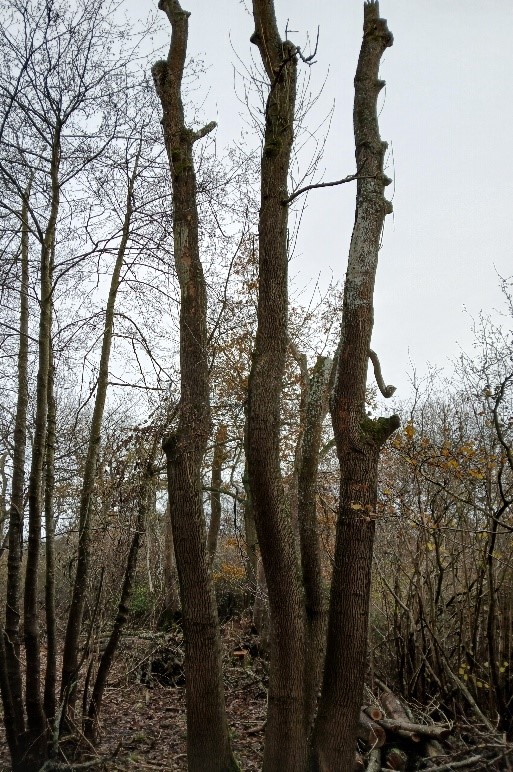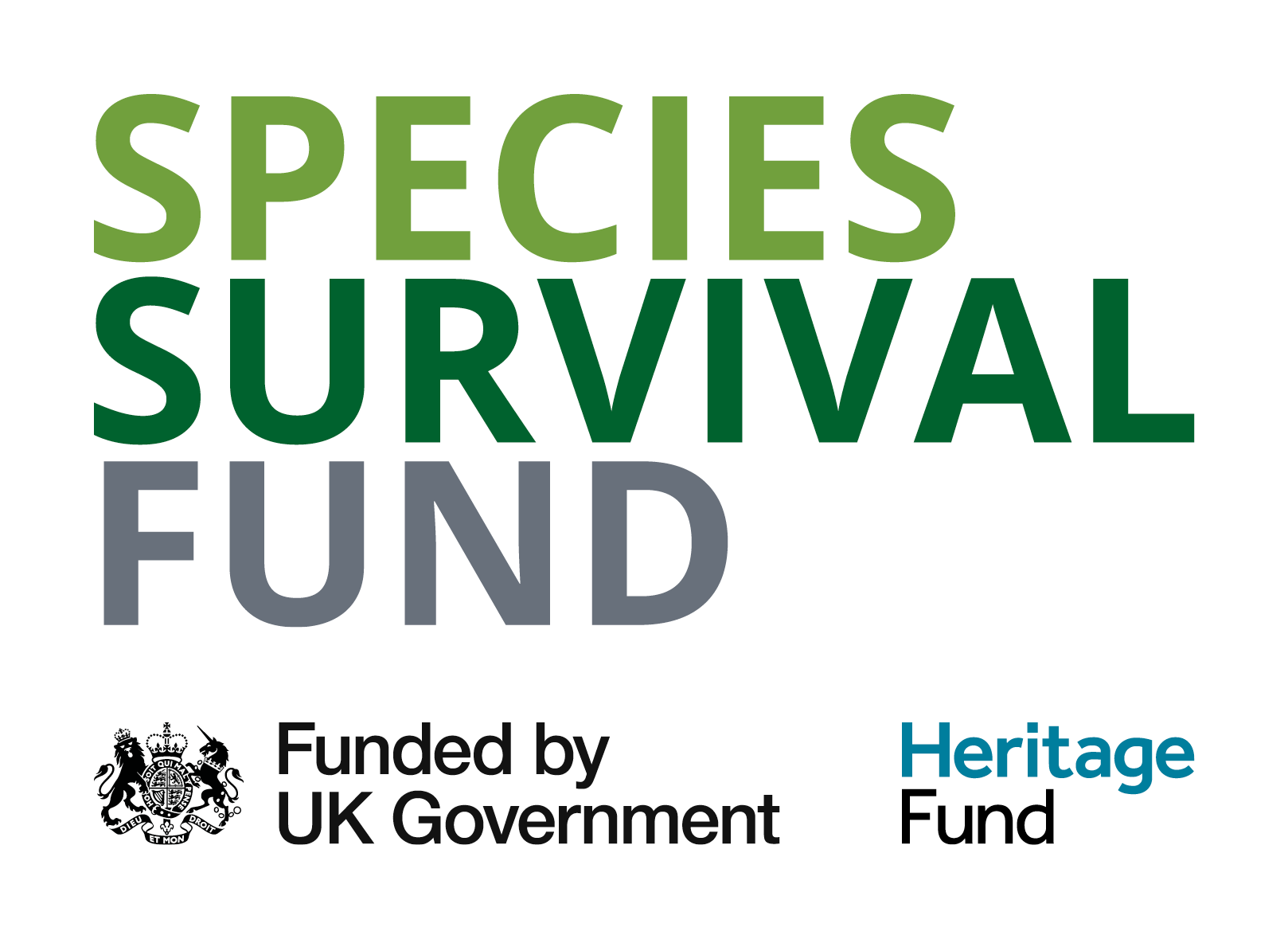By Jacky Akam, Partnerships for Nature Project Support Officer
Seven months into the 20-month Partnerships for Nature in the North Wessex Downs (P4N) Project and we can see some of the results of the hard work being put in by the project partners. P4N is part of the national Species Survival Fund (SSF), funded by Defra and administered through the National Lottery Heritage Fund. P4N in the North Wessex Downs includes private landowners and farming business, estates, and local and national charities. P4N’s aim is to increase and improve habitat to benefit a range of species on 7 separate sites across the NWDNL through habitat creation, restoration and enhancement.
Progress Update
Chalk grassland at Tidcombe Down has been over-seeded and planted with plug plants. Along with some scrub clearance this year the work will help enrich & restore 20ha of semi-improved chalk grassland. This work is part of the partnership with the Southern Streams Farmer Group & FWAG SE.
Chalk grassland is a key component of P4N because it is one of the most biologically-rich and diverse habitats in the UK. Over 40 species of flowering plants are found in a single square metre of the best quality turf. Around 9% of chalk grassland in the UK lies within the North Wessex Downs and this has declined by 32% between 1968 and 1998. The remaining areas are suffering increased fragmentation. Work at Tidcombe Down will help chalk grassland support more species like butterflies including the Adonis blue, Duke of Burgundy, Chalkhill blue and small blue.
New Wetland at Sulham Estate has been created. Two hectares of new wetland on the edge of Pangbourne, including open water and margins, will support a tall herb community. This project has been in partnership with the Estate, Action for the River Kennet (ARK) and Mend the Gap, For more information see Sulham Woodmeadows | Mend the Gap
Additional wetland restoration at Benham Estate is underway and will be completed this Autumn. This work will improve the chalk stream on the River Kennet by restoring the sinuosity (bendyness!) and gradient and recreating natural pools and riffles. Reconnecting the river to the flood plain will re-wet areas of wet meadow and woodland. Volunteers have contributed significant time surveying and carrying out practical work at the site. The work being done here has been shared with other landowners and river keepers; it is vitally important to share learning and encourage more river restoration.

River keepers & land managers tour the works at Benham Estate with Cain Bio. Credit: ARK
Spring-fed streams and rivers support an extremely diverse range of plant and animal communities. It is estimated that 85% of the world’s chalk streams are in England and the North Wessex Downs holds a significant proportion of this resource. The River Kennet has the highest diversity of species per site surveyed of any river in lowland England.
Heathland restoration and wood pasture creation is underway at Bucklebury Common. Having employed a ranger with P4N funding, the Bucklebury Estate is using contractors and, with the help of local volunteer groups, has started to clear holly and secondary birch woodland to restore valuable heathland and wood pasture habitats. In time, cattle will be introduced to graze the area, keeping the regrowth under control. The work will also benefit the significant ancient trees on the common and the associated dead-wood invertebrates, fungi and non-vascular plants (such as mosses and liverworts).

Holly pulling underway. Credit: Bucklebury Estate
Woodland coppice at Moor Copse is being restored by the Berks, Bucks & Oxon Wildlife Trust. Ash trees suffering ash dieback have been pollarded and will be veteranized creating standing dead wood within the coppice blocks. Making the site safe will enable ongoing woodland management, providing more woodland habitat to encourage woodland birds, bats and butterflies and hopefully hazel dormouse. Volunteers have received chainsaw training, first aid training and tree H&S, ready for working on the woodland.

Pollarded ash tree. Credit: NWD NL
Regenerative Farming at Earth Trust at Little Wittenham has started with the employment of a Regenerative Farming and Species Recovery Officer who is being mentored by FWAG South East. Integrating a range of habitats into a productive arable field will provide habitat for a wide range of pollinating insects, birds and small mammals, providing links for species to move across the farmed landscape.
Two dew ponds have been re-created at Sheepdrove Farm. Dew ponds are an historic feature of the NWD farmed chalk hills, traditionally providing water for grazing animals, whilst increasing biodiversity of the landscape.

Digging the dew pond. Credit: Sheepdrove Farm
Plantlife International have been surveying Sheepdrove farm with a view to trialling different ploughing and sowing regimes to maximise arable plants. The North Wessex Downs supports a wide range of nationally and regionally important plant species associated with arable farmland. Plantlife have already discovered some rare arable plants including dwarf spurge, Venus’s-looking-glass, stinking chamomile, field madder and small toadflax
More information about the Partnerships for Nature project can be found on our website here


